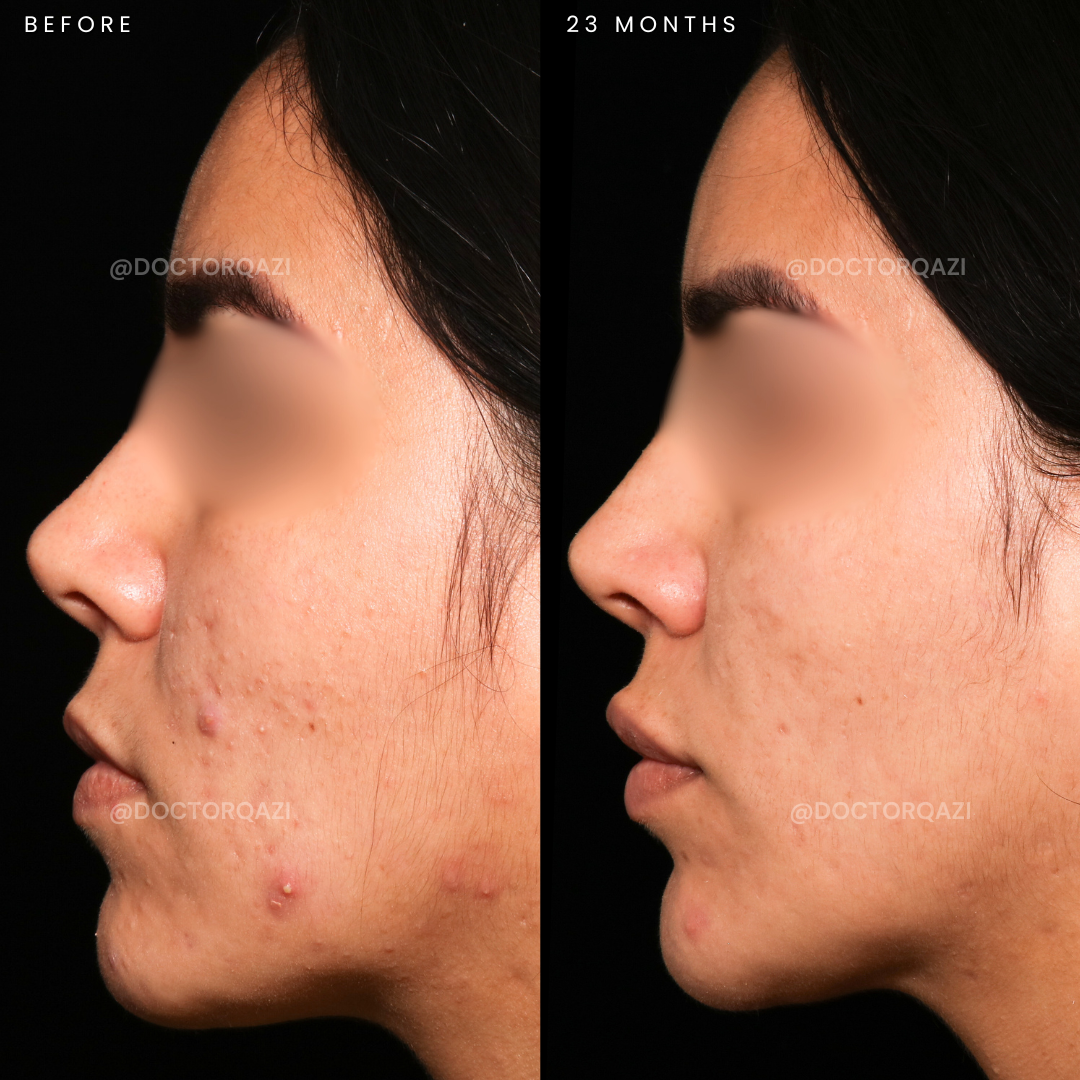Despite the name, fungal acne isn’t actually acne at all. The correct medical term is Malassezia folliculitis, and it’s caused by an overgrowth of yeast (a type of fungus) that naturally lives on the skin. When this yeast grows out of control—usually due to sweat, heat, or humidity—it clogs your hair follicles and creates itchy, acne-like breakouts.
Unlike typical acne, fungal acne is not caused by bacteria or oil. That means traditional acne treatments like benzoyl peroxide or antibiotics often make it worse.

How Do You Know If It’s Fungal Acne?
It can be hard to tell the difference just by looking, but there are a few clues:
- Itchy: Traditional acne usually isn’t itchy. Fungal acne often is.
- Clusters: Fungal acne usually shows up as uniform, small red bumps—often on the forehead, chest, shoulders, or upper back.
- Triggers: It tends to flare up after sweating, wearing tight clothing, or using greasy skincare.
- Not improving with acne meds: If your breakouts don’t respond to typical acne treatments, fungal acne could be the reason.
What Causes Fungal Acne?
Fungal acne is usually triggered by:
- Overuse of antibiotics
- Hot, humid climates
- Occlusive skincare or makeup
- Tight or sweaty clothing
- Compromised skin barrier
When the skin's natural yeast balance is disrupted, the fungus multiplies, leading to inflammation in the hair follicles.
How We Treat Fungal Acne at Qazi Cosmetic Center
At Qazi Cosmetic Center in Orange County, we understand that not all acne is the same. Here’s how we typically approach fungal acne:
-
Accurate Diagnosis
Dr. Qazi personally examines the skin and reviews your skincare and lifestyle history to determine whether your acne is bacterial or fungal. -
Targeted Topical Treatments
Instead of acne-fighting antibiotics, we may recommend antifungal creams like ketoconazole or sulfur-based cleansers to control yeast overgrowth. -
Oral Antifungal Medication
In more severe or stubborn cases, a short course of oral antifungal pills like fluconazole may be used to restore balance. -
Laser and Light Therapy
We often incorporate treatments like BBL (BroadBand Light), the Accure Laser or Clarifying Laser Facials to reduce inflammation and improve overall skin health. -
Lifestyle and Product Guidance
We’ll help you swap out pore-clogging products and suggest breathable fabrics, proper cleansing techniques, and anti-fungal body washes to keep fungal acne away.
What to Avoid If You Have Fungal Acne
If you suspect your breakouts might be fungal, avoid the following until you can be properly assessed:
- Heavy moisturizers or oily skincare
- Antibiotics (unless prescribed specifically for something else)
- Tight, sweaty gym clothing
- Prolonged time in damp, humid conditions
Virtual Consultations Are Available
If you’re not in Orange County, no problem. Dr. Qazi offers virtual consultations where we can assess your skin through photos and video. Schedule here — no phone call required.
Patients from around the country visit our clinic, located just 5 minutes from John Wayne Airport. Many fly in and return home the same day.
Payment and Financing Options
We offer a variety of payment and financing options, including:
- Cherry
- CareCredit
- Alpheon
- Affirm
Learn more at doctorqazi.com/pages/financing.
Don’t Settle for the Wrong Acne Treatment
If you’ve been trying everything for your acne and nothing is working, fungal acne might be the real issue. At Qazi Cosmetic Center, we treat every skin condition from the root—with personalized plans that actually work.
Click here to book your in-person or virtual consultation today or call us at (949)-336-7293.
Let’s get your skin (and your confidence) back on track.









